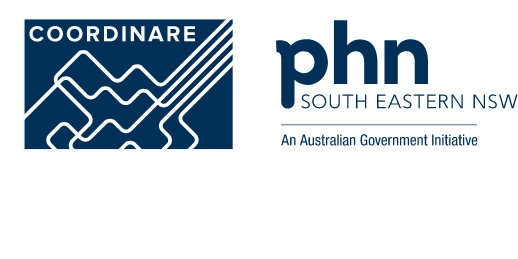
General practice supporting bowel cancer awareness
24 June 2021
This month is national bowel cancer awareness month which draws attention to the valuable role general practice plays in promoting bowel cancer screening. It also highlights the role general practice plays in encouraging patients to take that final step and have the test.
COVID-19 has had an undeniable impact on general practice and patient health behaviour. Bowel cancer awareness month is a great reminder to reflect on how we can continue to raise awareness for bowel cancer screening and drive momentum.
Currently, participation in the national bowel cancer screening program in the SE NSW PHN catchment is 44.8%. which is marginally higher than the national average (please refer to the COORDINARE, SENSW Population Health Profile for more information). Nationally, participation is higher among women than men and is low within Aboriginal and Torres Strait Islander communities, at approximately 19.5% nationally (please refer to the National Indigenous Bowel Screening Pilot for more information).
Colorectal cancer can often develop without any warning symptoms, which is concerning as it is the second most common cause of cancer-related death in Australia. We know that screening for bowel cancer can reduce deaths by 15%-25% and the faecal occult blood test allows us to achieve this safely.
According to GP Soli Duveaux, General Practitioners (GPs) play a key part in promoting colorectal cancer screening. Not only do GPs arrange, review and oversee the ongoing care of patients with positive screening tests but they also arrange the targeted screening of patients in the moderate and high risks groups.

(Pictured: GP Soli Duveaux)
“A recommendation to undertake the screening test provided by a GP could be the greatest influence on participation”, she says. Soli goes on to describe the benefit offered by HealthPathways as an aide in clinical decision making.
“The bowel cancer screening pathway provides GPs with clear guidelines to assess which risk category is more appropriate for the patient and with this offer adequate management based on the screening results”.
Bowel cancer screening is divided into the National Bowel Cancer Screening Program (NBCSP) and targeted screening. The first group includes all asymptomatic Australians between the ages of 50 and 74, who will be offered a screening test every two years. The latter category however requires a GP to assess the appropriate risk category for the patient after collecting a very detailed family history. Patients in the moderate and high-risk categories should be advised to have earlier screening and may also be required to have regular colonoscopies from a specific age.
“The process of assigning such risk categories is easier to follow by using the assessment section in the bowel cancer screening pathway in HealthPathways. Appropriate referral of patients with high-risk familial syndromes and patients with positive screening tests can be accessed in the management section and includes the NBCSP GP assessment report that needs to be completed by the treating GP”, she advises.
One of the most useful aspects of the bowel screening pathway is the resources that assist in providing education to the patient.
“It is also a great source of educational material to promote the bowel cancer screening program and increase adherence through targeting groups that are not currently participating due to cultural or language barriers”, she concludes.
A variety of resources in different languages can be accessed in the patient information section of the colorectal cancer screening pathways. There is also useful material designed for Aboriginal and Torres Strait Islander patients that can be found in the clinical resources section of the pathway.
For helpful information and resources about bowel cancer screening please see the HealthPatwhays for bowel cancer screening and colorectal symptoms (NORTH). bowel cancer screening and colorectal cancer symptoms (SOUTH).
For more information about this month's bowel cancer awareness campaign please visit the Cancer Institute NSW website.
